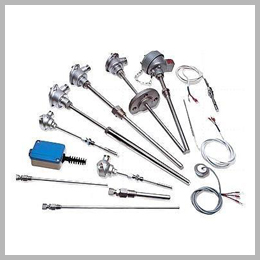Ensuring Accuracy: Critical Factors When Choosing Industrial Thermocouples in Malaysia
In Malaysia’s industrial sector, precise temperature measurement is non-negotiable for product quality, process efficiency, and equipment protection. Selecting the right thermocouple requires careful analysis of operational demands. As a trusted supplier of thermocouples in Malaysia, Thermotronic Engineering guides professionals through the key technical considerations.
Application Environment: The Foundation of Durability
- Corrosive/Chemical Exposure: Specify sheath materials like:
- 316 Stainless Steel: Moderate corrosion resistance
- Inconel 600: Oxidation resistance (up to 1150°C)
- *Hastelloy C-276*: Severe chemical environments
- High Vibration/Pressure: Mineral-insulated (MgO) cables with ruggedized probes
- Humidity/Moisture: Hermetic seals + PFA/Teflon insulation
Response Time: Matching Process Dynamics
- Fast Processes (e.g., sterilization, thin-film coating):
- Exposed or grounded junctions
- Small-diameter sheaths (0.5mm–1.5mm)
- Slower Processes (e.g., bulk material heating):
- Ungrounded junctions
- Larger sheaths (3mm–6mm) with ceramic insulation
Probe Configuration & Mounting
| Application |
Optimal Design |
| Tank/Pipe Surfaces | Spring-loaded surface mounts |
| Liquid/Gas Immersion | Penetration probes (min. 10x sheath depth) |
| Hygienic Environments | Sanitary tri-clamp fittings |
| Complex Machinery | Flexible armored cables |
Sensor Compatibility Essentials
- Thermocouple Types:
- Type K: General industrial (-40°C to 1260°C)
- Type T: Food/pharma (-200°C to 350°C)
- Type J: Plastics/rubber (0°C to 750°C)
- Instrument Matching:
- Verify controller input types (mV range, cold-junction compensation)
- Use correct extension wire (e.g., EXTT-K for Type K)
Critical Specifications Decoded
- Sheath Diameter: ↓ Diameter = ↑ Response Speed ↓ Durability
- Junction Types:
- Grounded: Fast response, electrical noise risk
- Ungrounded: Electrical isolation, slower response
- Insulation Materials:
- Fiberglass: ≤480°C
- PFA/Teflon: Chemical/moisture resistance
- Ceramic: ≤1600°C
Conclusion
Selecting industrial thermocouples in Malaysia demands technical rigor. By prioritizing environmental resilience, response dynamics, physical configuration, and compatibility, engineers ensure accurate, reliable temperature monitoring. For complex scenarios, Thermotronic Engineering provides specification support to optimize performance.

